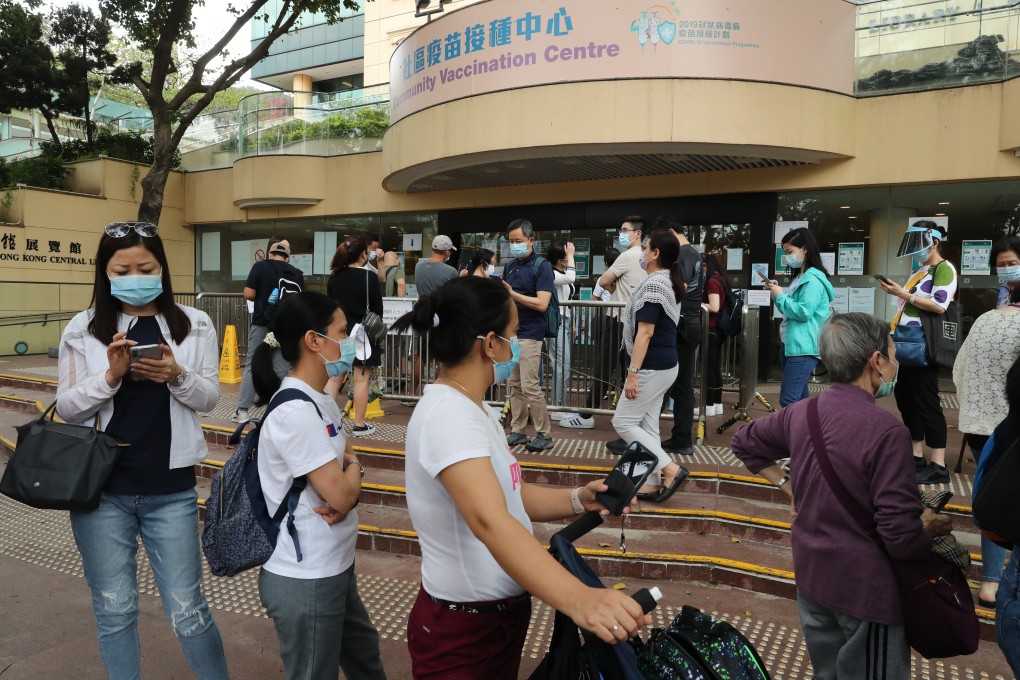Advertisement
Get your vaccine, win a flat: bookings for jabs surge, but experts say Hong Kong herd immunity still a challenge
- Incentives help, but more must be done to get 70 per cent of Hongkongers vaccinated, experts say
- Easier travel might prove the big draw for some who haven’t made their vaccine bookings yet
Reading Time:3 minutes
Why you can trust SCMP
99+

Hong Kong could achieve herd immunity against Covid-19 this year, with the rate of vaccination boosted recently by lotteries and lucky draws, but medical experts warn that sustaining the momentum will be a challenge.
They struck a cautious note despite a sharp uptick in bookings for vaccinations in the past week, after Hong Kong businesses dangled generous rewards to those who took their jabs.
After developers announced on May 28 that fully vaccinated people stood to win a HK$10.8 million (US$1.4 million) flat, the total daily bookings for the mainland-made Sinovac vaccine, and the German-made BioNTech jabs, surged to 47,600 on June 1. There were only 20,200 bookings on May 27, the day before the announcement.
Bookings for both vaccines rose significantly between those dates, going up from 6,600 to around 15,000 for the Sinovac dose and from 13,600 to 32,600 for the BioNTech shot.
Advertisement
Between May 27 and June 3, the daily number of people who received their jabs leapt by 38.5 per cent, from 26,144 to 36,209, with the rise mainly from those receiving the Sinovac vaccine, a 61 per cent increase.
Both vaccines available in Hong Kong require two jabs.
Advertisement
Since the mass inoculation programme began in late February, around 1.53 million people, or 20.4 per cent of the population, have received their first dose, and about 1.11 million of those have also had their second and are fully vaccinated.
Advertisement
Select Voice
Select Speed
1.00x